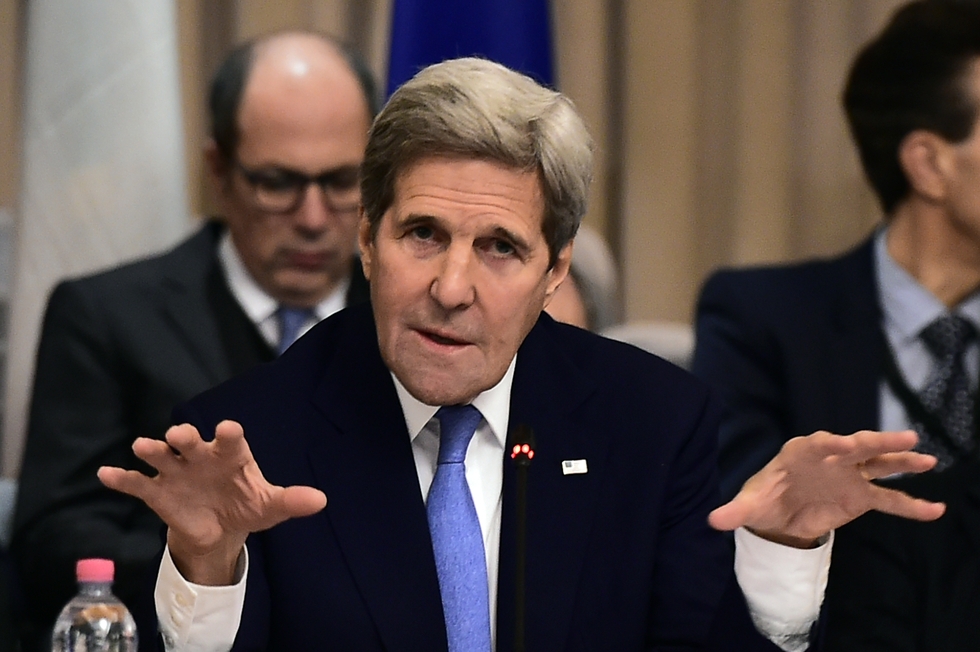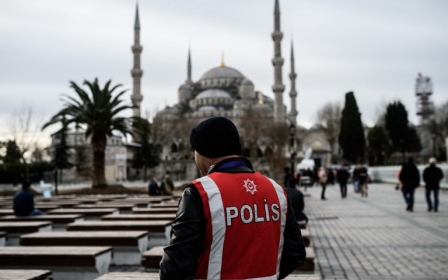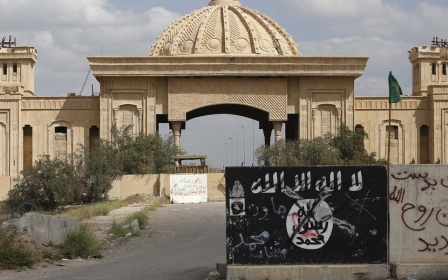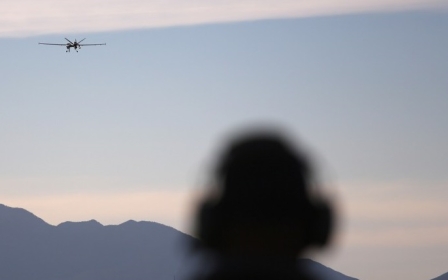US-led coalition warns of growing IS threat in Libya

The United States and Italy warned on Tuesday that the Islamic State (IS) group is expanding its reach, threatening to seize Libya and launch attacks in western countries.
Representatives from the 23 countries of the US-led coalition battling IS' self-declared "caliphate" gathered in Rome to assess and renew their efforts.
However, hours after the announcement French Foreign Minister Laurent Fabius told reporters that the West was not considering intervention against IS in Libya, denying a string of recent reports saying in French media.
"There is absolutely no question of military intervention in Libya," Fabius told reporters on the sidelines of the Rome meeting. "There is pressure (for that) but that is not the position of the government.
According to Italian Foreign Minister Paolo Gentiloni and US Secretary of State John Kerry since the allies last met on the issue six months ago, the IS group had suffered setbacks in its core territory in Syria and Iraq but that these rollbacks were forcing the group to adapt and redirect its efforts to Libya, where it has seized new territory. They also said this helped to explain why IS had begun conducting more attacks abroad, including attacks in Paris, Ankara and San Bernadino, California.
"We are surely not here to brag about anything," Kerry said, after saying IS fighters have lost 40 percent of their territory in Iraq and 20 percent in Syria.
"We're here to recommit, we're here to re-evaluate, we're here to make judgements about things we have started that we could do better," he said.
Gentiloni said the challenge facing the coalition of mainly Western and Arab nations is stark.
"We know that we have in front of us an organisation that is very resilient and able to plan strategically and so we should not underestimate it," he said.
"If anything we need to be ever more wary and more watchful because we know that the more Daesh is squeezed in its core territories the more tempted it is pursue its terrorist activities elsewhere," he warned, using an Arabic name for IS.
"We are witnessing renewed activity in Libya and in sub-Saharan Africa," he said.
Italy has taken the lead with the coalition in planning for how to address the IS threat a short boat ride from its southern shores in the Libyan city of Sirte.
"In the past few months the threat in our own homelands has taken on a new more dangerous dimension requiring the coalition's focused and coordinated attention," he added.
'No place to run'
Washington likes to claim that it has built a 66-nation coalition to fight the IS group - the latest country to join this week was Afghanistan, Kerry said.
But a so-called "small group" of 23 nations has taken the lead in carrying out air strikes in Iraq and Syria and training and arming local forces to fight the militants.
Kerry said that the effort now needs to be stepped up, citing the example of the United States' deployment of small numbers of special forces troops inside Syria.
"The challenge now, my friends, is pretty straightforward," he said, in opening remarks to his coalition colleagues ahead of a longer closed-door dialogue.
"To push ahead with a strategy we have learned will work and to do so relentlessly, giving Daesh no time to regroup, no place to run, no safe havens in which to hide.
"This will not be a profitable meeting if we don't talk about what we can do better, because we're still not at the victory that we want to achieve and will achieve."
Meanwhile, Libya's unrecognised Islamist-backed parliament on Tuesday dismissed 10 lawmakers who signed a UN-brokered deal to set up a national unity government, members said.
First deputy head of the Tripoli-based General National Congress, Awad Mohammed Abdul-Sadiq, told a news conference the GNC "sacked some of the members who signed" the December agreement in Morocco.
Those parliamentarians were not "authorised" to ratify the deal and were excluded from the GNC because they "violated the (2011) constitution" and their pledge to respect the charter, he added.
A spokesman told AFP the decision affected 10 parliamentarians, including GNC vice president Saleh el-Makhzoum.
New MEE newsletter: Jerusalem Dispatch
Sign up to get the latest insights and analysis on Israel-Palestine, alongside Turkey Unpacked and other MEE newsletters
Middle East Eye delivers independent and unrivalled coverage and analysis of the Middle East, North Africa and beyond. To learn more about republishing this content and the associated fees, please fill out this form. More about MEE can be found here.




